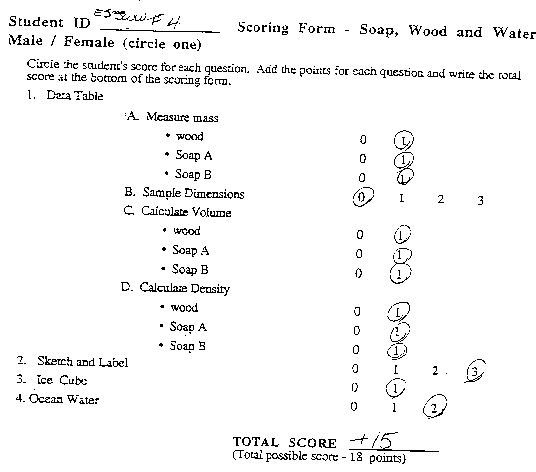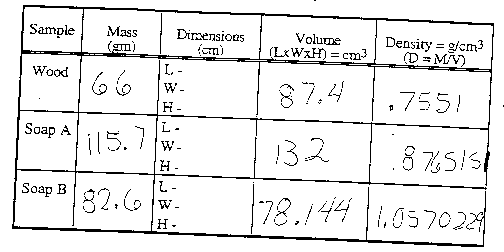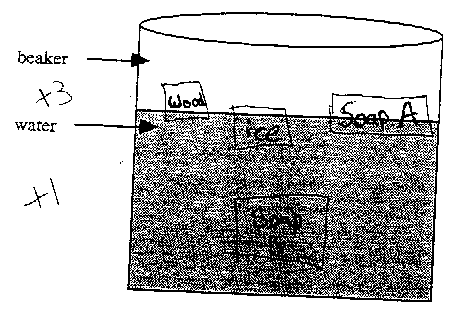|
Grade 5-8 Performance Task
Contributed by: New York State Education Department (NYSED)
NYS Alternative Assessment in Science Project (1994)
Student #2

Task:
At this station, you will determine the density
of some common objects and prdict how they would behave in water.
Materials:
- balance (gm)
- metric ruler
- soap sample A
- calculator
- wood sample
- soap sample B
Background:
Some objects float and some sink when placed in fresh water. The
density of a material is a physical property and can be used as
an identifying characteristic. Fresh water has a density of 1.0
gm/cm cubed.
Directions:
A. Do not remove the wrapper from the soap. This will help
protect their soft surfces.
B. Place your answers on the answer sheet. Complete the chart and
answer questions 2, 3, and 4.
C. Disregard the effects of the wrappers on the soap samples. Again,
do not remove the wrapper from the soap.
- Fill in the chart below by determining the mass, volume, and
density of the three samples to the nearest tenth place. You may
disregard the effects of the wrappers. (Keep wrappers on the soap
to help protect their soft surfaces.

- The picture below represents a glass container with fresh water.
Assume that these three (3) samples were actually placed in such
a container. Based on your calculations in the data table, sketch
and label the diagram where you think each of the three samples
(wood, soap A and soap B) would be.

- Assume that an ice cube were also placed in the container. Based
on past experiences sketch and label in the picture above where
you think the ice cube would be.
- If the same four (4) objects (wood, soap A, soap B, and ice)
were placed in ocean water, explain in complete sentences what
you think would happen to the way they would float.

|

